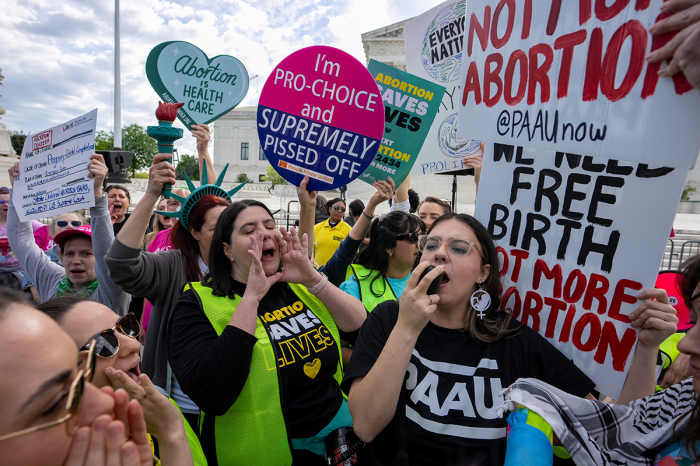Ballot initiatives to make abortion a constitutional right certified in 2 states

Two additional states have certified proposals for ballot measures to go before voters in the fall that would establish a right to abortion in their respective state constitutions.
In a statement released Friday, the advocacy group Coloradans for Protecting Reproductive Freedom announced that the Colorado Secretary of State issued a statement of sufficiency, paving the way for a ballot measure that would establish a right to abortion in the state constitution to go before voters in November.
To take effect, the proposal would require the support of 55% of the state's voters, as opposed to a simple majority.
If approved by voters, the Colorado Constitution would be amended to read, "The right to abortion is hereby recognized, government shall not deny, impede, or discriminate against the exercise of that right, including prohibiting health insurance coverage for abortion."
While Colorado is one of four states that allows abortion throughout all nine months of pregnancy, the state constitution has had a prohibition on the use of Medicaid to pay for abortions for 40 years. The proposed constitutional amendment seeks to change that.
"In this time of uncertainty, we need to secure abortion rights and access in the Colorado Constitution beyond the reach of politics and politicians. This initiative will secure that right for present and future generations," said Coloradans for Protecting Reproductive Freedom Co-Chair Karen Middleton. "A right isn't a right if you can't exercise it because you can't afford it. We have to ensure that insurance coverage for every Coloradan, whether the source of it is public or private, includes abortion care."
In South Dakota, a proposal to amend the constitution to establish a right to abortion has also secured a place on the ballot. On Thursday, the South Dakota Secretary of State's Office validated the ballot measure, which differs in scope from the one in Colorado.
Specifically, the proposed constitutional amendment declares that "Before the end of the first trimester, the State may not regulate a pregnant woman's abortion decision and its effectuation, which must be left to the judgment of the pregnant woman."
The proposal also proclaims, "After the end of the first trimester and until the end of the second trimester, the State may regulate the pregnant woman's abortion decision and its effectuation only in ways that are reasonably related to the physical health of the pregnant woman."
"After the end of the second trimester, the State may regulate or prohibit abortion, except when abortion is necessary, in the medical judgment of the woman's physician, to preserve the life or health of the pregnant woman," the proposal added.
South Dakota restricts abortions in almost all cases, making it one of 15 states with such pro-life protections on the books.
A 2023 poll conducted by South Dakota News Watch and the Chiesman Center for Democracy at the University of South Dakota found that 45.6% of South Dakotans supported establishing a right to abortion in the state constitution while 43.6% opposed such a measure. The proposal must receive the support of a majority of South Dakotans in order to pass.
The push to establish rights to abortion in state constitutions follows the U.S. Supreme Court's 2022 Dobbs v. Jackson Women's Health Organization decision, which determined that the U.S. Constitution doesn't contain a right to abortion and reversed the Roe v. Wade ruling that established a right to abortion nationwide.
In 2022, voters in California, Michigan and Vermont approved ballot measures making abortion a state constitutional right, while Ohio did the same in 2023.
Colorado and South Dakota now join a growing list of states where voters will have the opportunity to decide abortion policy at the ballot box this fall. Ballot measures that would establish a right to abortion are already slated to appear before voters in Florida and Maryland.
Ryan Foley is a reporter for The Christian Post. He can be reached at: ryan.foley@christianpost.com





























